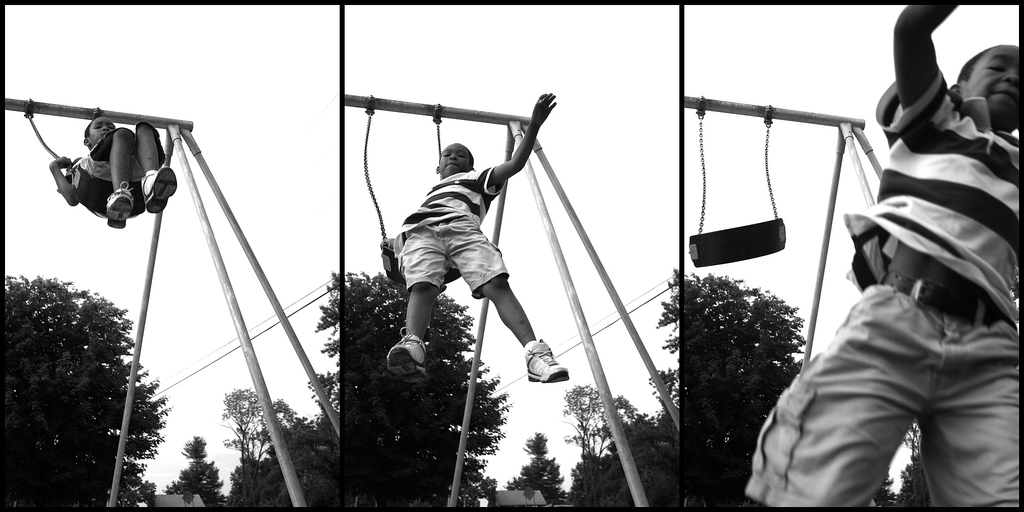“Don’t do anything that isn’t play.” – Marshall Rosenberg
When I first read this years ago I thought, “What do you mean, Marshall? I’ve got a ton to do. I’ve got a job to go to, dishes to wash, laundry to fold, meals to cook, a house needs cleaning, and a sick kid to take care of. None of that is play and I can’t find the time to take care of myself, exercise, relax, or spend time with a friend. How can I play when I have all these responsibilities to others?”
The answer is to have compassion for myself, then everything, even work, has a bit of play in it.
What does Marshall Rosenberg teach about how to have compassion for ourselves?
“An important form of self-compassion is to make choices motivated purely by our desire to contribute to life, rather that out of fear, guilt, shame, duty, or obligation. [When] what motivates us is simply to make life wonderful for others and ourselves, then even hard work has an element of play in it… [A] joyful activity performed out of obligation, duty, fear, guilt, or shame will lose it’s joy and eventually engender resistance.”
Rosenberg offers 3 Steps for Self Compassion.
- Write a list. List everything that you do that you don’t think you have a choice about, that you think you have to do. You may notice how much time during your day you spend not enjoying your life or how many things you are tricking yourself into believing that you have to do.
- Choose each item. When you’re done with your list, acknowledge to yourself that you are doing these things because you choose to do them, not because you have to. Put the words “I choose to . . .” in front of each item on the list. When I did this I notice having some resistance to the thought of choosing to do these things that are not enjoyable. I thought “I don’t choose to help the kids clean their room. I have to. I’m the mom. They can’t do it by themselves. It’s too hard. And Jason can’t help because he doesn’t do it thoroughly.” And I thought, “I don’t choose to pack the kids’ lunches. They can’t pack a balanced lunch by themselves. They don’t know how to do that.”
- Get in touch with the intention. With each item on your list figure out what your intention behind it is. Write for each item “I choose to ____ because I want ____.” When I did this for myself I realized that I choose to help the kids clean their room because I love how I feel when the house is tidy. It also gives me a chance to help them clean things out so that they can keep things better organized. And I can help them learn the task of cleaning, by breaking things down into smaller steps and by teaching them to be strategic and efficient. I still might have to remind myself a few times during room cleaning what my intention is, but now that I recognize what values I have underneath bedroom cleaning I can have some enjoyment flexibility and lightness with our cleaning.
Then I thought, “Why I choose to pack the kids’ lunches?”. The only reason I came up with it was because I didn’t think our kids could pack them by themselves. Our kids were 5 and 7 at the time, certainly old enough to help make a lunch and to learn about nutrition and balance. So, we worked together to make a list of healthy foods that they enjoyed, and we put them in categories (protein, grains, fruit, veggie) so that if they chose one from each category they would have a balanced meal. I bought some healthy, prepackaged foods to make things easier for kids to grab. I had to be available to help them, especially in the beginning and they needed some extra encouragement to budget their time in their morning routine but I’ve almost never had to pack a lunch for them since. My mornings are now freed up, the kids eat more food at school because they pack what they like and I’m not frustrated with them coming back from school, not having touched their food.
What in your life can you find enjoyment in, with the full understanding of your intention? What in your life can you let go of now you see that your intention is not something you’re commited to?
For today, don’t do anything that isn’t play,
Cecilia and Jason










What a powerful exercise it is to transform our thoughts and intentions to acknowledge the choice that we have in all that we do. Thank you Cecilia!
This is hard for me to be compassionate with myself. I expect a lot, sometimes too much, I think.